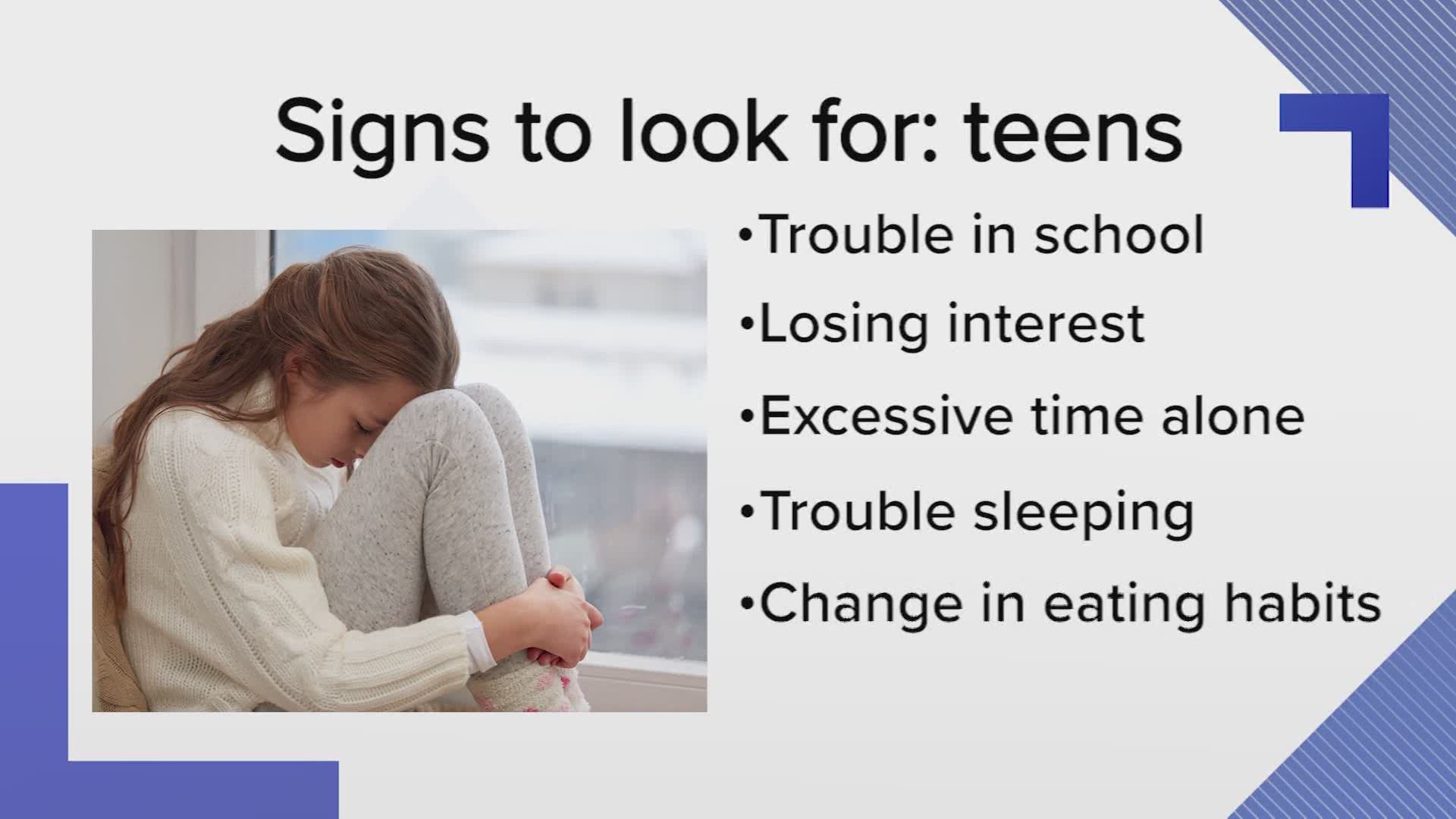FORT BEND COUNTY, Texas — Fed up with life during this pandemic? You’re not alone. In fact, a recent CDC survey found a lot of adults are downright depressed and anxious because of it. But it’s also impacting the mental health of kids and teenagers.
For 15-year-old Bailey Grier, of Richmond, her pre-pandemic life was a happy one filled with high school and extra-curricular fun with friends.
“She’s always up and doing something with friends,” her mother, Araceli Grier, said. “Once that was gone, she just kind of crumbled after that.”
Quarantined at home away from friends and school, Bailey started dealing with very real, very scary emotions.
“I started having bad coping mechanisms and it hurt me a lot,” Bailey said choking back tears.
“She struggled,” Araceli said. “There were just days where she wouldn’t get out of bed.”
Life changed so fast for everyone that a little unrest is expected. But with teens and kids, when does it become something to truly worry about and seek professional help?
KHOU Mental Health and Wellness expert Bill Prasad breaks it down by age and what to look for starting with children 0 to 5.
“Some of the signs that you might see might be a regression in behaviors,” Prasad said.
Examples include accidents after being potty trained and a child getting anxious when a parent leaves the room.
Also, keep in mind that brain development at this age is linked to playing with kids their own age, if they’re unable to it’s up to a parent to step into that “playmate” role, too.
Prasad said for kids ages 6 to 12, parents should also look for regression in behaviors. Are they playing differently? Acting out on toys? Having nightmares or trouble sleeping?
“All of those coming together should tell a parent that the child might need some additional help,” he said.
For teenagers; “If a child’s grades start to drop. If they start to lose interest in things. They spend a lot of time in their room. If they have sleep disruptions. If they are eating patterns are disrupted,” Prasad said.
Most of those signs rang true for Bailey who admits, “I just would sit there and pick myself apart and just cry.”
Her mom was able to step in and help. They started running and cooking together. Araceli said for Bailey’s mental health, she is now allowed to see two of her best friends. But if these things didn’t help Araceli was prepared to look to a professional.
“We don’t know how much longer this is going to continue. You have to find your new normal,” Araceli said.
For anyone needing help finding their “new normal” click here for a list of free resources.

